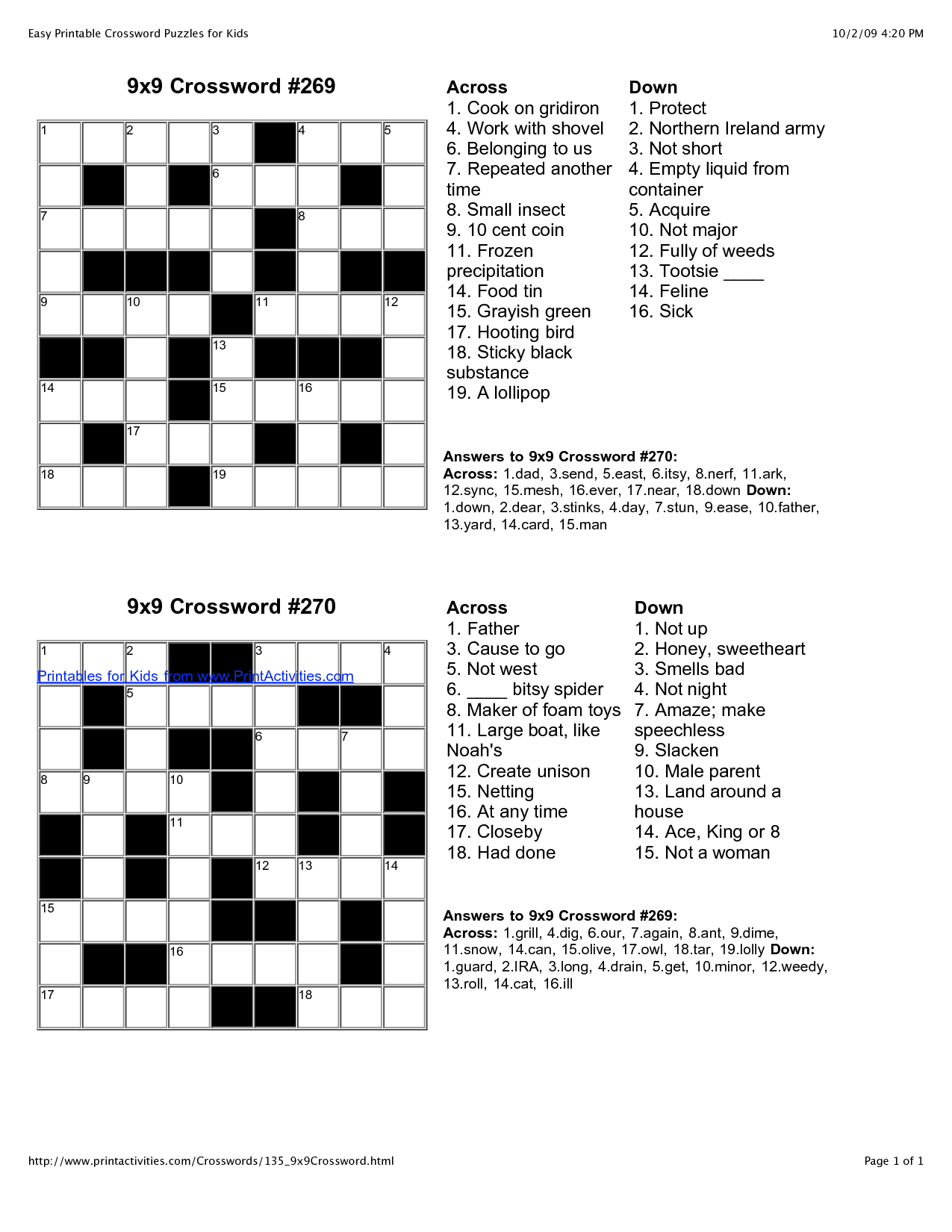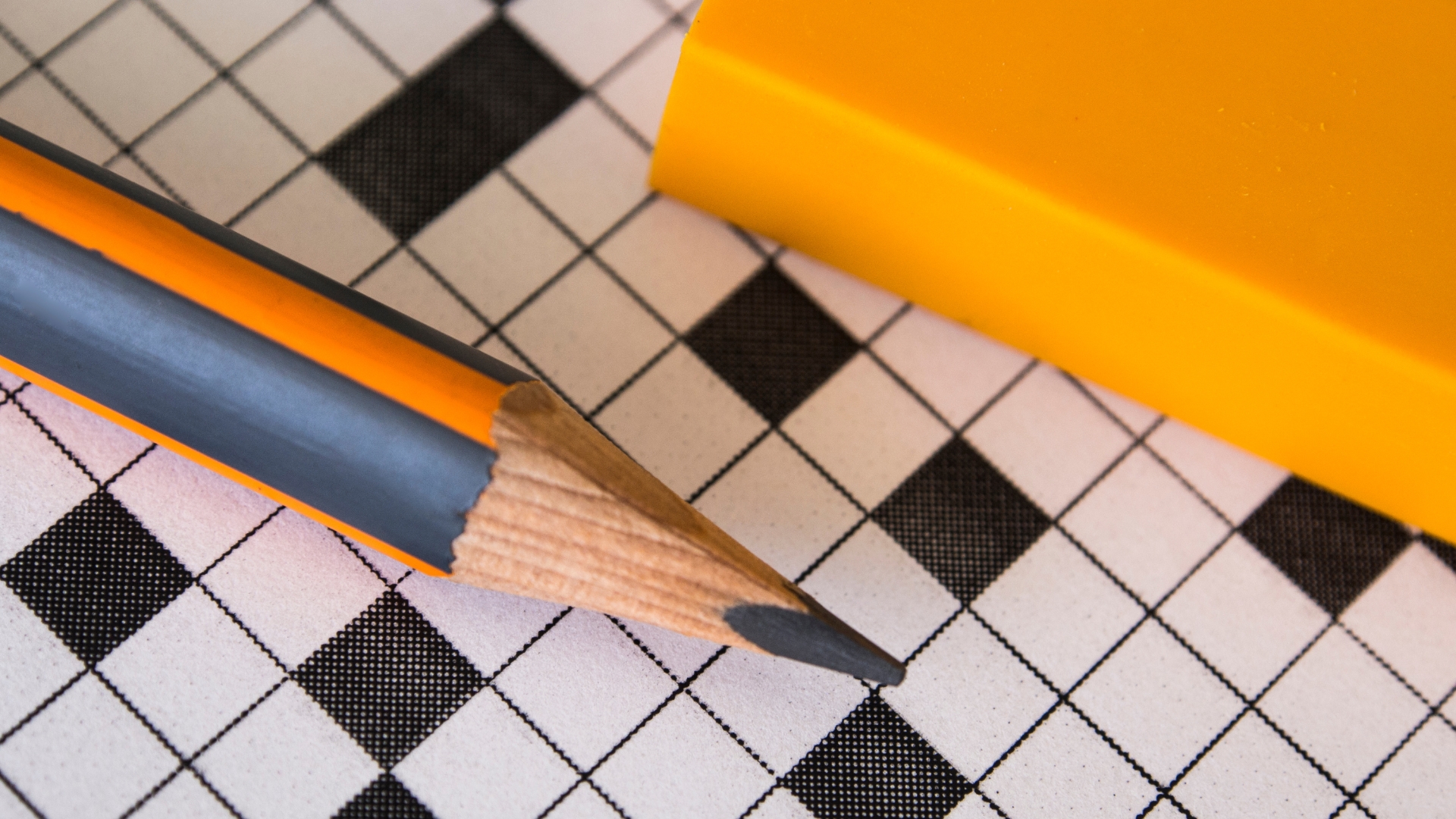Cracking The Code: Your Ultimate Guide To Useful Crossword Clue
Let’s face it, folks, crossword puzzles can be a real mind-bender. Whether you’re a seasoned solver or just starting out, having access to useful crossword clue is like having a secret weapon in your arsenal. It’s not just about filling in the blanks; it’s about exercising your brain, expanding your vocabulary, and having a blast while doing it. So, buckle up, because we’re diving deep into the world of crossword puzzles and uncovering all the tricks of the trade.
Now, you might be wondering, "Why should I even care about crossword clues?" Well, my friend, solving crosswords isn’t just a hobby—it’s a mental workout. It keeps your brain sharp, improves memory, and enhances problem-solving skills. Plus, there’s nothing quite like the satisfaction of completing a challenging puzzle. And guess what? With the right strategies and a few insider tips, you’ll be solving like a pro in no time.
But hold on a sec, before we get into the nitty-gritty, let’s talk about why useful crossword clue is so important. Imagine this: you’re stuck on a tricky clue, and you can’t seem to figure it out. Frustrating, right? But with the right approach and a solid understanding of how crossword clues work, you’ll be breezing through those puzzles like a champ. So, let’s get started and unlock the secrets of successful crossword solving!
- The Darkest Black Person In The World A Fascinating Journey
- Knight Melendez The Rising Star Redefining Entertainment
What Makes a Crossword Clue Useful?
Alright, let’s break it down. A useful crossword clue is one that provides enough information to guide you toward the correct answer without giving it away completely. It’s like a treasure map with just enough hints to keep you engaged and challenged. The best clues are clever, concise, and sometimes even a little cheeky. They make you think outside the box and consider all possible angles. So, what exactly makes a clue useful? Here are a few key factors:
- Congruence: The clue should align with the answer in terms of meaning, context, and wordplay.
- Clarity: While crossword clues can be tricky, they should still be clear enough to understand with some reasoning.
- Creativity: The best clues often involve wordplay, puns, or clever phrasing, making the solving process more enjoyable.
- Consistency: A good clue sticks to the theme of the puzzle and fits seamlessly within the grid.
So, when you’re faced with a crossword clue, take a moment to analyze it. Look for patterns, consider alternate meanings, and don’t be afraid to think creatively. After all, that’s half the fun!
Understanding the Anatomy of Crossword Clues
Every crossword clue has its own personality, and understanding their structure can make all the difference. Let’s take a closer look at the different types of clues you might encounter:
- Colin Cowherd Wife Pics The Inside Story Yoursquove Been Waiting For
- Ann Cowherd Age Unveiling The Life And Legacy Of A Remarkable Woman
1. Straightforward Clues
These are the bread and butter of crossword puzzles. They’re direct, to the point, and usually involve synonyms or definitions. For example, if the clue is “Feline,” the answer is likely “CAT.” Easy peasy, right? But don’t let their simplicity fool you—sometimes the most straightforward clues can trip you up if you’re not paying attention.
2. Wordplay Clues
Now, here’s where things get interesting. Wordplay clues are all about puns, anagrams, and clever phrasing. For instance, a clue like “Doctor’s order? (3)” could lead you to “BED” if you think about it as a hospital bed. These clues are designed to make you think twice, and they’re often the most rewarding to solve.
3. Abbreviation Clues
Abbreviations are a common feature in crossword puzzles, especially for shorter answers. Clues like “Org. for endangered species” might lead you to “WWF” (World Wildlife Fund). Keep an eye out for clues that end with “abbr.” or “for short,” as they’re often hinting at an abbreviation.
Understanding the anatomy of crossword clues is like learning the rules of the game. Once you’ve got the basics down, you’ll be able to tackle even the toughest puzzles with confidence.
The Art of Deciphering Useful Crossword Clue
Deciphering a crossword clue is both an art and a science. It requires a combination of logic, creativity, and a bit of intuition. Here are a few tips to help you crack the code:
- Read the Clue Carefully: Sometimes, the answer is hiding in plain sight. Pay close attention to every word in the clue—you never know which one might hold the key.
- Consider Alternate Meanings: Many crossword clues rely on double meanings or homophones. For example, “Capital idea” could refer to a great idea or the capital city of a country.
- Look for Patterns: Crossword constructors often use similar patterns or wordplay in their clues. Once you recognize these patterns, you’ll start to see them everywhere.
- Use Context Clues: If you’re stuck on a clue, look at the surrounding answers. Sometimes, the context of the puzzle can give you a hint about the correct answer.
Deciphering useful crossword clue is like solving a mystery. It’s all about piecing together the clues and using your knowledge to find the solution. And the more you practice, the better you’ll get!
Common Challenges in Solving Crossword Clues
Even the best solvers encounter challenges from time to time. Here are a few common obstacles you might face and how to overcome them:
1. Tricky Abbreviations
Abbreviations can be a real head-scratcher, especially if you’re not familiar with them. To tackle this challenge, keep a list of common abbreviations handy. You can also use online resources or crossword-solving apps to help you out.
2. Obscure References
Some crossword clues reference obscure historical events, literary works, or pop culture trivia. If you come across a clue that leaves you stumped, don’t hesitate to do a quick search. Knowledge is power, and the more you know, the better you’ll become at solving puzzles.
3. Cryptic Clues
Cryptic clues are designed to be tricky, but they’re also the most rewarding to solve. To master cryptic clues, practice is key. The more you expose yourself to them, the better you’ll get at spotting the hidden patterns and meanings.
Challenges are just part of the game, and they’re what make crossword puzzles so exciting. Embrace them, learn from them, and you’ll become a better solver in no time.
Building Your Crossword Vocabulary
A strong vocabulary is essential for successful crossword solving. But don’t worry, you don’t have to be a walking dictionary to tackle those puzzles. Here are a few tips to help you build your crossword vocabulary:
- Read Widely: Expose yourself to a variety of genres and topics. The more you read, the more words you’ll encounter.
- Use Flashcards: Create flashcards with words and definitions to help you memorize new vocabulary.
- Play Word Games: Engage in word games like Scrabble or Boggle to sharpen your skills.
- Keep a Journal: Write down new words you encounter and their meanings. Review them regularly to reinforce your learning.
Building your crossword vocabulary is a lifelong journey, but it’s one that can bring a lot of joy and satisfaction. The more words you know, the more confident you’ll feel when faced with a challenging clue.
Tools and Resources for Solving Crossword Clues
In today’s digital age, there’s no shortage of tools and resources to help you with your crossword solving. Here are a few that you might find useful:
1. Crossword Solver Apps
There are plenty of apps available that can help you solve crossword clues. Some of the most popular ones include Crossword Solver, NYT Crossword Solver, and WordWeb. These apps can provide hints, definitions, and even solve entire puzzles for you.
2. Online Dictionaries
Online dictionaries like Merriam-Webster and Oxford English Dictionary are invaluable resources for crossword solvers. They provide detailed definitions, synonyms, and etymologies that can help you crack even the toughest clues.
3. Crossword Communities
Joining a crossword-solving community can be a great way to learn from others and share your own knowledge. Websites like Crossword Nexus and Crossword Compiler offer forums where solvers can discuss puzzles and exchange tips.
These tools and resources can be a lifesaver when you’re stuck on a clue. But remember, the goal is to improve your skills, not to rely on them too heavily. Use them wisely and sparingly, and you’ll become a better solver in no time.
Expert Tips for Mastering Crossword Clues
So, you want to take your crossword solving to the next level? Here are a few expert tips to help you master the art of useful crossword clue:
- Practice Regularly: Like any skill, crossword solving takes practice. Set aside some time each day to work on puzzles, and you’ll see improvement over time.
- Study Past Puzzles: Look at past puzzles and analyze the clues. Pay attention to patterns, wordplay, and recurring themes.
- Collaborate with Others: Solving puzzles with friends or family can be a fun and rewarding experience. It also gives you a chance to learn from others and share your own knowledge.
- Stay Curious: Keep an open mind and be willing to learn new things. The more you know, the better you’ll become at solving crossword puzzles.
Mastering crossword clues is a journey, and every step you take brings you closer to becoming a pro. So, keep practicing, stay curious, and most importantly, have fun!
Conclusion: Your Journey to Crossword Mastery
And there you have it, folks. A comprehensive guide to useful crossword clue and everything you need to know to become a crossword-solving champion. Remember, the key to success is practice, patience, and a willingness to learn. Whether you’re solving for fun or competing at a professional level, the joy of cracking those clues is unparalleled.
So, what are you waiting for? Grab a pencil, dive into that crossword puzzle, and start unlocking the secrets of successful solving. And don’t forget to share your experiences with us in the comments below. We’d love to hear about your journey to crossword mastery!
Table of Contents:
What Makes a Crossword Clue Useful?
Understanding the Anatomy of Crossword Clues
The Art of Deciphering Useful Crossword Clue
Common Challenges in Solving Crossword Clues
Building Your Crossword Vocabulary
Tools and Resources for Solving Crossword Clues
Expert Tips for Mastering Crossword Clues
Article Recommendations
- The Darkest Black Person In The World A Fascinating Journey
- Unlock Your Movie Streaming Experience With 0gomoviesit



Detail Author:
- Name : Alessandro Moen
- Username : presley46
- Email : gerry.fay@stokes.com
- Birthdate : 1985-04-18
- Address : 4394 Herman Key Connerside, MA 81677
- Phone : 1-408-642-4373
- Company : Rice PLC
- Job : Forest Fire Inspector
- Bio : Fugit dolores et iusto est eos ut neque. Sunt laborum autem laboriosam. Rerum non nobis soluta voluptate. Error doloribus dolorem eos explicabo.
Socials
facebook:
- url : https://facebook.com/ebarton
- username : ebarton
- bio : Voluptatibus esse assumenda occaecati quo accusantium.
- followers : 5860
- following : 2653
instagram:
- url : https://instagram.com/ebarton
- username : ebarton
- bio : Rerum quae esse possimus eligendi. Qui qui tempore ratione est nisi officia.
- followers : 2647
- following : 1315
tiktok:
- url : https://tiktok.com/@barton1992
- username : barton1992
- bio : In quia nulla distinctio ducimus. Et corrupti vero est minima vitae.
- followers : 4450
- following : 836
twitter:
- url : https://twitter.com/elfrieda.barton
- username : elfrieda.barton
- bio : Fugit tempore eum delectus consequatur. Ducimus quos voluptate et accusamus praesentium. Laudantium sint incidunt officiis porro suscipit doloribus aut.
- followers : 1557
- following : 1635